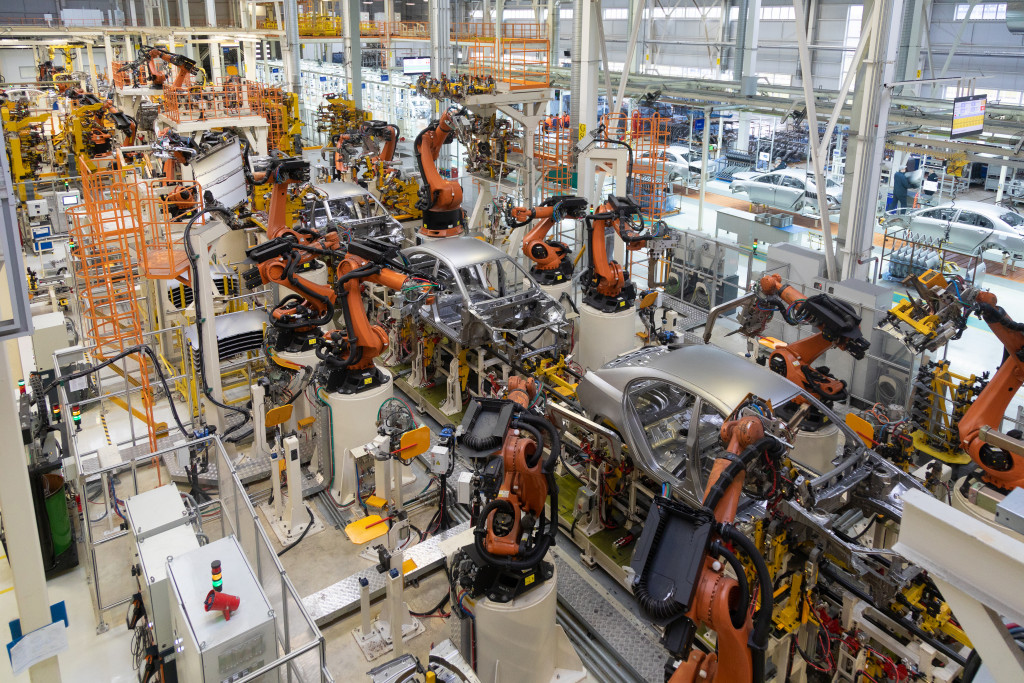The Fourth Industrial Revolution, or Industry 4.0, provides numerous positive outcomes for the manufacturing industry. At the minimum, it boosts worker productivity, encourages predictive maintenance, breaks down data silos, refines demand forecasting, and improves operational efficiency.
Industry 4.0 affects all aspects of manufacturing from conceptualization to delivery using digital transformation, smart warehouses, data sensors, asset and product tracking, and deep analytics. In fact, according to IBM, technologies provided by this industrial revolution help bridge the gap between processes that were once separate. As a result, they are more visible across an entire company, allowing actionable insights to enhance them.
Because of this, advanced technologies have become a valuable asset to manufacturing businesses of all sizes. Virtually every business process can be improved when advanced technologies are applied. In fact, according to Manufacturing Global magazine, 85% of organizations that used advanced technologies have moved their business forward by two years compared to their competitors that didn’t.
Indeed, advanced technology has become a primary factor for companies to achieve their business goals. Because of this, manufacturing organizations are set to spend almost $700 billion on advanced technologies for this year alone.
Fortunately, technology is now more affordable, especially for small to mid-sized enterprises. However, businesses wanting to apply one or more forms of advanced technology are still having questions about the kind of solutions they should use for their business.
Of course, every business has different needs. This would affect their choices. Manufacturing Global, however, recommends factors such as implementation timeline, budget, and priorities to determine an organization’s technological needs. They also suggest the following advanced technologies for a start.
Autonomous Robots
You will not need human operators if you use autonomous robots. You could, though minimally.
Robots can manage their own tasks intelligently. They are self-sufficient machines that limit downtime in your production line unless they are up for maintenance. Still, they can perform complex repetitive tasks accurately and quickly.
Because of this, autonomous robots can be used in a manufacturing plant to carry on production without interruption. However, they can also be used for other tasks such as taking orders at the warehouse. Their intelligence enables them to analyze the most efficient routes to pick required items quickly.
Perhaps the most crucial task robots can do is provide safety in a production line. They can hold and carry heavy items, which helps prevent your workers from being subjected to accidents and injuries from palletization, assembly, and welding.
Artificial Intelligence and Machine Learning
Artificial intelligence (AI) and machine learning (ML), respectively, are two of the most popular advanced technologies available. They have been depicted in movies for far too long and wide, although in a cynical and sinister way.
However, in an industrial and commercial setting, AI and ML are machines that use algorithms to process data to develop solutions and predictions that were not originally programmed into them by their developers. These manufacturers use them for preventative maintenance, demand forecasting, and market changes.
Cloud Computing
Cloud computing refers to connected systems on the internet that holds data and software. Instead of having your business data on a local machine, they are located in an offsite server. Cloud computing can be used with machine learning for risk modeling for manufacturing companies. This can help you lessen maintenance costs for high-powered machinery.
The Internet of Things

The technological needs of the industrial sector were the driving force behind Industry 4.0. The industry needed connected equipment to help them get the insight required to make better decisions. One of the most promising technologies that can provide this is the Internet of Things (IoT).
IoT collects and monitors data throughout businesses in real-time using small sensors, often with computing capabilities. This ability is used in a wide array of functions, from lights in your warehouse to machinery on the factory floor. This enables manufacturers to remove bottlenecks and improve production throughout.
For example, cast stone suppliers can use IoT to connect devices on their production floor to monitor production usage, efficiency, and uptime. The data they collect can determine which machinery creates bottlenecks and what solutions can be used to fix them.
Digital Twin
A digital twin provides a virtual representation of a production line in a manufacturing factory. Through a digital space, real-world objects and concepts are simulated. According to IBM, the use of digital twins in the manufacturing industry can improve workflows and productivity. Simulated processes can help manufacturers find ways to increase capacity and minimize downtime.
Industry 4.0 Is Here and Now
To improve your manufacturing business, consider adopting the advanced technologies above for your business. They will increase efficiency, productivity, and profits for your company.

